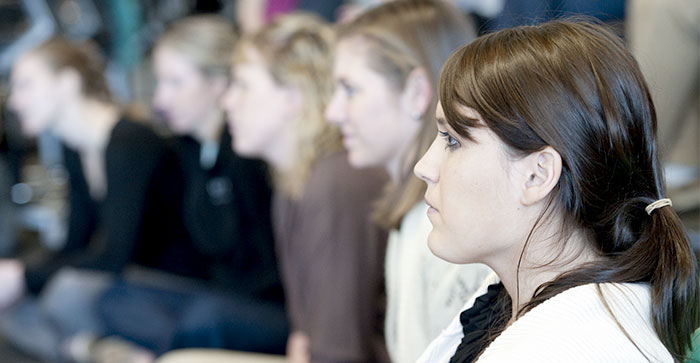Admissions

Doctor of Physical Therapy
Our College of Health Professions offers the Doctor of Physical Therapy (DPT) degree, through its Department of Physical Therapy. The Doctor of Physical Therapy Program admitted the first cohort of students in 2010. Classes take place in the Medical Education Training Building which offers state-of-the-art educational facilities for physical therapy education.
The Doctor of Physical Therapy Program at the University of North Texas Health Science Center is accredited by the Commission on Accreditation in Physical Therapy Education (CAPTE), 1111 North Fairfax Street, Alexandria, Virginia 22314; telephone: 703-706-3245; email: accreditation@apta.org; website: http://www.capteonline.org. The physical therapy program also has received approval of the Texas Higher Education Coordinating Board.
Master of Physician Assistant Studies
The College of Health Professions offers a 30-month program that culminates in awarding the Master of Physician Assistant Studies degree. The Physician Assistant Studies program has been accepting PA students since 1997. Since opening its doors, the program proudly boasts more than 500 practicing alumni who provide healthcare services to citizens of Texas and beyond. In 2000, the department became the first state physician assistant studies program in Texas granted authority to award the Master of Physician Assistant Studies degree. Graduates of our Physician Assistant program are eligible to sit for the national Physician Assistant Certification Exam. In 2010, Forbes.com cited the physician assistant as the number one profession on their top ten list of “Best Master’s Degrees for Jobs.” Our master’s degree program in Physician Assistant Studies is currently ranked 34th in the nation by U.S. News and World Report.
Master of Science in Lifestyle Health Sciences and Coaching
Our innovative graduate program provides you with the knowledge, skills, and tools needed to become a credentialed health and wellness coach with a specialization in evidence-based lifestyle medicine. This career field draws from psychology, behavioral health, physiology, nutrition and exercise science, as well as emotional intelligence, communication, health literacy, and leadership. The curriculum will build foundational competencies and translatable skills that will equip you to work in a variety of clinical, community or corporate settings.

Social media